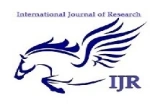HOW WILL FORCE MAJEURE EFFECT THE BUSINESSES ALL AROUND THE WORLD DURING COVID-19 ?
Force majeure refers to a contractual provision that limits liability due to unforeseen events outside the control of the parties that delay performance of the contract or prevent performance entirely. A force majeure provision excuses performance based upon the occurrence of specific qualifying events that constitute force majeure or that fall within the purview of a broader “catch-all” category of events that may qualify as force majeure events. These may include “acts of God,” war, fire, national emergencies, labor strikes, diseases, pandemics, epidemics, natural disasters, governmental acts or regulations, and other “acts beyond the control” of the parties.
In light of the novel Coronavirus (COVID-19) pandemic, many businesses are confronting circumstances that may excuse or delay their obligations to perform under existing contracts due to the occurrence of a force majeure event. Governments and businesses have implemented measures to prevent or curtail the spread of the virus in the form of travel bans, border closures, restrictions on gathering sizes, closure of non-essential stores and businesses, cancelation of public events and other similar measures. The current and evolving restrictions designed to prevent the spread of COVID-19 may make it impossible to timely perform under the contract. Consequently, many businesses are simply unable to perform their contractual obligations. Some have invoked force majeure to eliminate or limit liability due to their inability to perform such contractual obligations. Similarly, some companies have cancelled various contracts for goods and services in light of travel restrictions and other limitations. The extent to which COVID-19 and its downstream effects and consequences constitute a qualifying force majeure event is highly fact-specific and depends on the terms of the contract, the specific facts, governing law and how courts in the relevant jurisdictions interpret force majeure provisions, among other things. With no force majeure clause it will be more difficult to claim relief. This means that the person who cannot fulfill the contract could be in breach of contract. If the contract has no force majeure clause then frustration may apply. Even if a contract does not have a specific force majeure provision, applicable law may allow a party to excuse performance under other theories in the face of unexpected events.
COVID-19 does not itself usually stop a contract being fulfilled. It is the consequences of COVID-19 which causes problems. For many contracts entered into before January 2020 then COVID-19 issues could not have been anticipated. But it would be more difficult to claim that COVID-19 issues could not have been anticipated for a contract entered into mid-March 2020. This is important as if COVID-19 issues could reasonably have been anticipated, then relief for force majeure is probably not available. Although COVID-19 is almost certainly for most contracts an event outside the reasonable control of a party that is not enough. COVID-19 itself will probably not hinder performance; it is the consequences that matter. A government decree which is legally binding ordering a factory shut is almost certainly for a pre-2020 contract an event outside the reasonable control of the parties.

